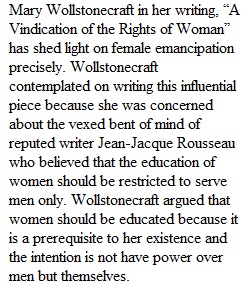


Q FIRST: SELECT A WORK TO ANALYZE FROM AMONG OUR CASE STUDIES. (YOU MAY ALSO CHOOSE A WORK DISCUSSED IN THIS WEEK'S READINGS.) SECOND: DESCRIBE THE GENERAL CONTEXT OF THE WORK; WHO, WHAT, WHEN, WHERE (You need not go into great detail on each question. And if someone else has already posted, try to find some additional information that is not mentioned. Try to work together as a class to fill out a description of the work. And, if you cannot. Ask a question about some additional information that you would like to have. Begin a dialogue.) THIRD: With regard to the "fifth way". 1) Explain why the work interests you. (If the work does not interest you, explain why.) Go into some detail. 2) Then, explain at least two things you learned about the "meaning" or "significance" of the work.Try to provide some commentary on what the work means in its historical context. Walker's work will prove especially complicated in distinguishing 'historical context'. She certainly offers some historical commentary in the work, but does she also provide contemporary social commentary? These questions require analysis and interpretation. Please consult the CLOSER LOOK video for ideas. And, 3) identify at least two questions that you would like to research further. FOURTH: Does this work relate to you somehow? Your interests? Your life? Your ideas? Your experience? Give it some thought and share with the class, if you would like. ?
View Related Questions